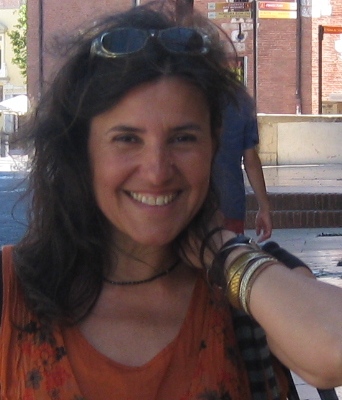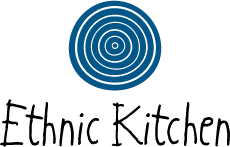
Joelle from France has found escape from consumerism in Lithuania
Joelle Galiauskas came to Lithuania ten years ago and lives with her family in a remote area in Panevezys district. Joelle and her husband Romas met in Lille, where he was working as a volunteer. After they married, Joelle and Romas lived in northern France for ten years before deciding to move to Panevezys to escape consumerist culture.
Joelle studied film theory and history at the Sorbonne University, where she earned a PhD. She worked as program manager at the Cinema Centre in Panevezys and aspires to introduce non-commercial cinema to Panevezys residents. She gives lectures and seminars on the art of film in Panevezys, Kaunas, and other cities. Joelle studied Lithuanian independently and now speaks quite well, though her home is still dominated by the culture and life style of her native France.
What brought you to Lithuania?
My husband is Lithuanian. At first, we were only visiting for our summer holidays, but I really loved being surrounded by Lithuanian nature and we really wanted for our children to learn Lithuanian and get really familiar with the culture, so we decided to make the move. At first, we didn’t know where to go, but we eventually settled in the village where my husband grew up and where his mother still lived.
Tell us one good thing and one bad thing about Lithuania.
I love nature and I like that Lithuanians have such a strong connection with it. All their traditions relate in some way to nature; people know the trees and the birds. Even people living in cities go to the countryside on weekends and in the summer.
One bad thing is that I do not like the parent-child dynamic here. There is no real conversation and communication between parents and their children. In our home, we eat and talk together as a family. We share our joys and our worries. Lithuanians eat separately from their kids and do not sit at the same table.
What are the main differences between Lithuanians and your compatriots?
At the first glance, Lithuanians may seem closed off, but they aren’t. They speak openly and honestly. The French are more likely to get angry and temperamental. Compared to the French, Lithuanians are too obedient. It’s as if they don’t see that’s possible to challenge the rules when you don’t agree with them.
What have you learned from Lithuanians?
I like that spontaneous meetings are possible with Lithuanians – there is no need for too much planning. I have also learned to communicate more directly.
What is your favourite place in Lithuania?
Baltriškės, in Zarasai district. There is a Belgian community in the Tiberiada monastery near the lake. The atmosphere there is beautiful – there is a green forest, a lovely lake, and the warmth of the monastery. The monks are very welcoming.
What is the funniest (or strangest) thing happened to you in Lithuania?
The winters are astoundingly cold here – the lakes and rivers freeze to the point you can go for walks on them. One winter day, my family and I were out on such a walk on a frozen river. Suddenly, the ice cracked and I plunged into the water! It wasn’t funny at all at the time, but when we warmed up at home, we laughed and laughed. Of course, it was me that fell through the ice! This is the kind of thing that would happen specifically to me. These days, I find it very invigorating to jump into an ice hole in the pond (on purpose) after a hot bath.
What does the kitchen mean to you?
The kitchen is central in my life. The way we eat is the way we live. Because there aren’t as many exotic vegetables in Lithuania as there are in France, I tap into my imagination to come up with new and interesting dishes using the ingredients I can find around me. I think this way of thinking is important not only in the kitchen, but in life as well. I cook in the French style and every day we eat French food made with Lithuanian products. I love sharing the French eating culture.





